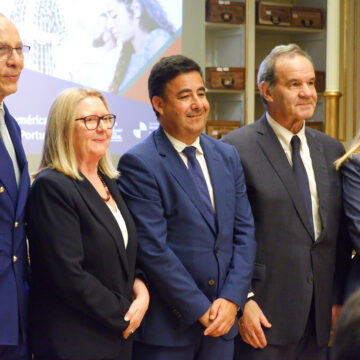Spain’s Triangular Cooperation Program for Latin-America and the Caribbean
TC as a modality to strengthen due to its enormous capacity to foster strategic and horizontal associations.
In 2024, the Spanish Agency for International Development Cooperation (AECID by its Spanish acronym) has launched its Triangular Cooperation Program for LatinAmerica and the Caribbean, conceived as an instrument to generate partnerships in the framework this modality, which Spanish Cooperation has been supporting for years in the region.
This program was conceived on innovative bases and is also driven by Triangular Cooperation’s capacity to simultaneously address the challenges of both Spanish and Latin-American cooperation, in the current context.
Indeed:
a. On the one hand, this program is launched the year after Spain approved its new Law on Cooperation for Sustainable Development and Global Solidarity. This law reflects Spain’s commitment to continue working with Latin-America and the Caribbean, as well as the importance of doing so with a focus on development in transition. This requires innovation and progress in terms of the cooperation modalities and instruments that have been traditionally used.
b. On the other hand, horizontal cooperation in Latin-America and the Caribbean is fully consolidated, and the region is demanding increasingly specialized technical cooperation, adapted to its development level and potential. The region needs new strategies and transforming partnerships that can materialize in technical cooperation, as well as in knowledge generation and transfer for sustainable development.
In this context, the future commitment of Spanish Cooperation with LatinAmerica and the Caribbean is to promote an advanced Triangular Cooperation, which supports the achievement of the SDGs, based on a more innovative work scheme, on processes, and on transforming elements, in order to be better aligned with the region’s current needs and challenges.
This innovative approach —which resulted from reflection and from the identification of the different areas that needed to be improved in the framework of this modality— has determined the conception and design of the Triangular Cooperation Program for Latin-America and the Caribbean, as an instrument to facilitate the generation of alliances for mutual benefit, responsibility and learning.
Accordingly, the Program is based on the concept of PARTNERSHIP, pivoting on three key aspects:
a. Demand. Actions should originate in country’s themselves and in their identification of their challenges, either through individual processes or through collaborative processes among the different partners.
b. Horizontality. Spain is considered to be a technical partner in this model; i.e. it does not only provide financial support but also actively participates in knowledge exchange and sharing, and benefits from the other partners’ experience.
c. Knowledge management and innovation. These are key elements to disseminate, share, and improve, in addition to being essential tools to promote dialogue to design public policies.
In order to combine these purposes and principles, the program is designed based on two lines of action: the support to Triangular Cooperation exchanges that promote partnerships in the search for solutions to Sustainable Development challenges; and a cross-cutting component aimed at fostering and improving the modality and the program itself.
Twenty-four (24) initiatives were approved in the framework of its first call for proposals. These involve institutions from 18 LatinAmerican countries, and create and foster strategic associations with a participatory, horizontal, multi-stakeholder and multilevel approach.
January 2025
***
Source: SEGIB based on Agencies and Directorates-General for Cooperation.

